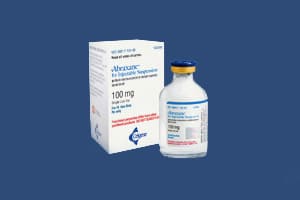
Celgene’s attempt to push its Abraxane product further up the treatment pathway in pancreatic cancer has been scuppered b a failed phase 3 trial.
Abraxane (nab-paclitaxel) is already approved to treat patients with advanced metastatic pancreatic cancer, but Celgene had been hoping to get approval for the drug as an adjuvant therapy given after surgery to try to prevent the cancer recurring.
The APACT trial compared Abraxane plus gemcitabine given after surgery to gemcitabine alone to see if the combination was better at delaying or preventing disease recurrence or death (disease-free survival), but according to Celgene was no better on this measure.
Curiously, overall survival – a secondary endpoint in the study – was improved with Abraxane, reaching “nominal statistical significance”, according to the company.
Expectations for a positive outcome for the trial weren’t high, particularly as it used gemcitabine as a control. Since APACT was started, a new regimen called mFOLFIRINOX – based on oxaliplatin, leucovorin, irinotecan, and fluorouracil – has been shown to be more effective gemcitabine in adjuvant pancreatic cancer.
Abraxane is one of Celgene’s top-selling products with sales passing the $1bn threshold for the first time last year, and the company has predicted growth to around $1.1bn in 2019. It’s facing a slowdown as patent protection for the drug expired in Europe last year, although Celgene is still claiming US market exclusivity until 2024.
The APACT trial has been a factor in Celgene’s near-term projections for the product so the failure is a disappointment, although it’s worth noting that Abraxane could get much more of a boost from ‘piggyback’ approvals with immuno-oncology drugs.
Celgene picked up the first of these last October when Abraxane was cleared alongside Merck & Co/MSD’s Keytruda (pembrolizumab) for frontline metastatic squamous non-small cell lung cancer.
It secured another this week when the FDA cleared the drug in combination with Roche’s PD-L1 inhibitor Tecentriq (atezolizumab) for triple-negative breast cancer – becoming the first immunotherapy regimen for a breast cancer indication – and in September, the FDA should deliver a verdict on the Keytruda/Abraxane regimen in frontline non-squamous NSCLC.
Celgene also says that there are currently more than 130 studies evaluating Abraxane in patients with pancreatic cancer in combination with more than 50 novel agents.




